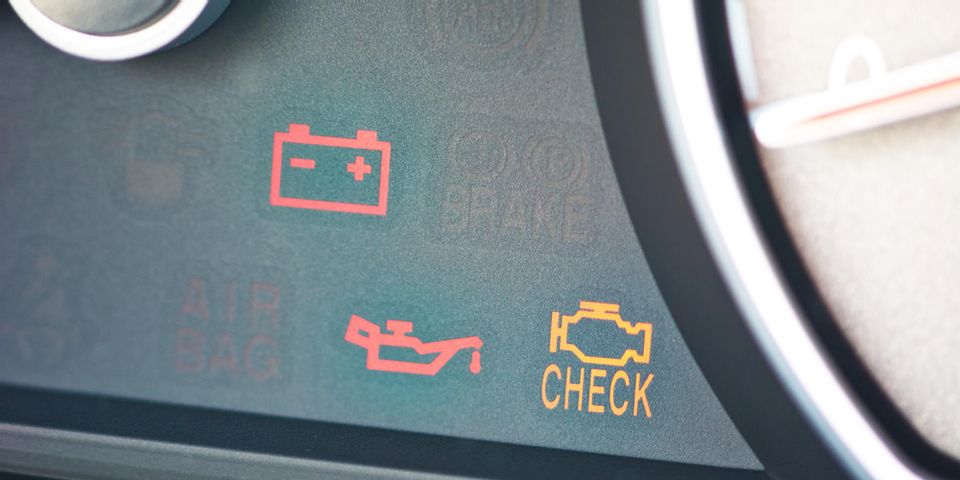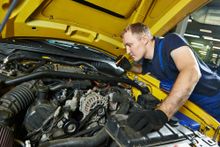5 Most Common Reasons Your Check Engine Light Comes On

Keeping up with car maintenance has never been easier as modern onboard computer systems keep track of all your vehicle’s working parts. The downside to all of this convenience is that today’s engines often have a lot more components to keep up with. The check engine light has become legendary with today’s drivers. If you see it light up in your dashboard, it helps to know the most common reasons and what the problem might be.
What’s the Most Likely Cause for Your Engine Light?
1. Oxygen Sensors
The oxygen, or O2, sensors in your vehicle’s exhaust manifold and behind the catalytic converter monitor how much unburned oxygen exists as the exhaust exits the engine. Reading these levels informs the computer if the fuel mixture is burning rich or lean so it can alter the mixture accordingly. As these parts age, they take longer to react to oxygen changes. This causes the vehicle to burn more fuel and could allow contaminants such as lead, silicone, phosphorus, and sulfur into the system.
2. Loose Gas Cap
The gas cap prevents debris from entering the fuel tank and stops vapors from escaping. Over time, this part will develop wear and might not be able to seal properly. Make it a habit to check this part during regular car maintenance, and replace it if it looks worn, damaged, or doesn’t click when closing. Otherwise, the evaporative emissions system won’t be able to trap and reuse fuel vapors, and they’ll enter the atmosphere instead.
3. Catalytic Converter
 A well-working catalytic converter protects the environment by absorbing carbon monoxide made by the engine and converting it into carbon dioxide. If this part is having issues, it will release harmful emissions into the air.
A well-working catalytic converter protects the environment by absorbing carbon monoxide made by the engine and converting it into carbon dioxide. If this part is having issues, it will release harmful emissions into the air.
4. Spark Plugs
The spark plugs are required to ignite the fuel-air mixture and produce power for the engine. When one or more is worn out, your car will have trouble starting, will misfire during acceleration, and will require more fuel. Inspect these plugs during your annual car maintenance tuneup to avoid getting caught off guard.
5. Mass Airflow (MAF) Sensor
When the MAF goes out, the vehicle is no longer capable of measuring the air that enters the engine and doesn’t know how much fuel to burn. This will cause it to burn more than necessary, leading to reduced engine power and harm to other crucial system parts.
To prevent unnecessary auto repairs, bring your vehicle to GSBP Automotive whenever the engine light comes on. Since 1985, they’ve provided auto services to Gulf Shores, AL. Their experienced ASE®-certified team will quickly determine the reason for the warning and perform any necessary car maintenance to get your vehicle back in good working order. Call them today at (251) 968-7456 for a free estimate, and visit their website to learn more about their services.
About the Business
Have a question? Ask the experts!
Send your question

